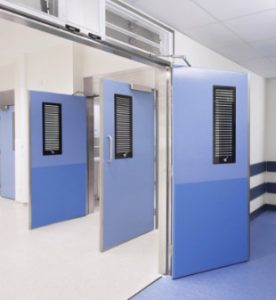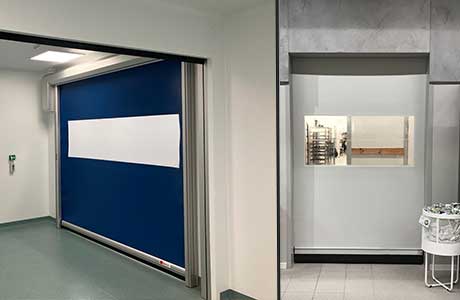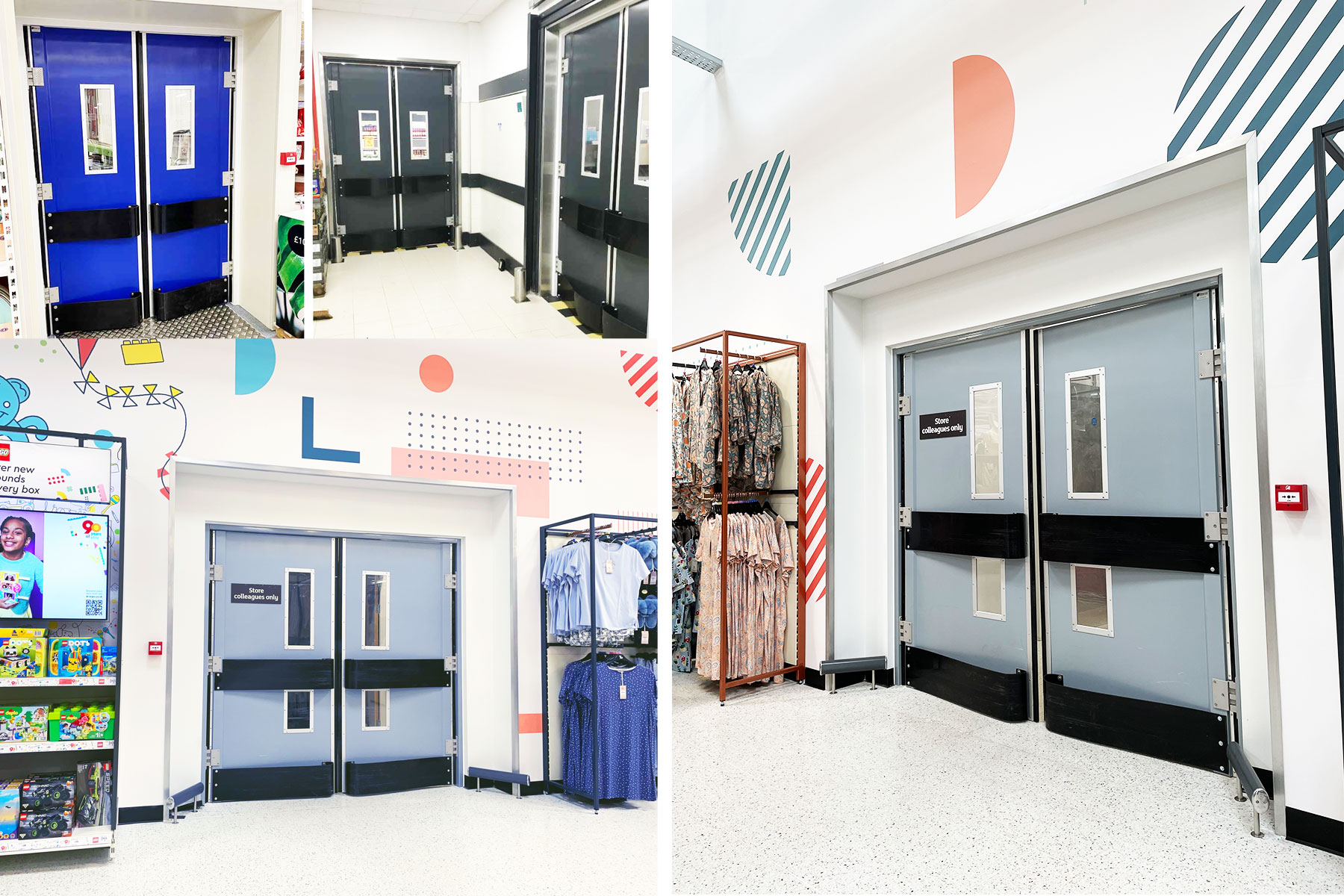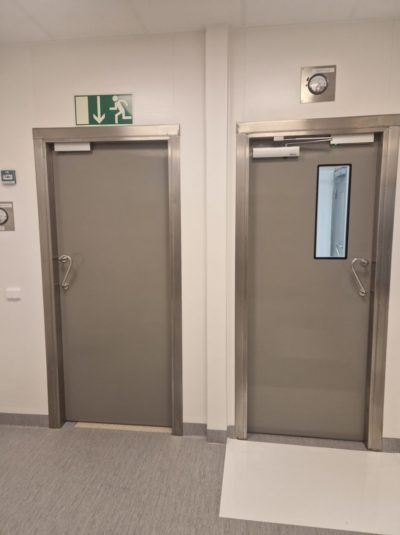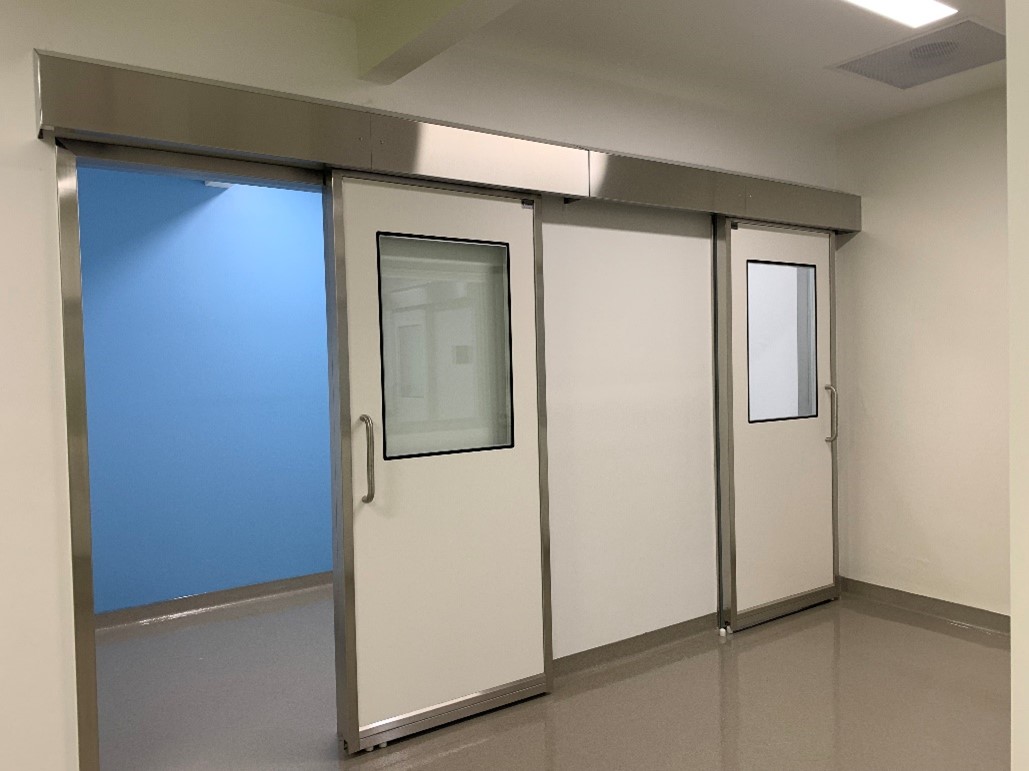Automated Hygienic Doors for Infection Control
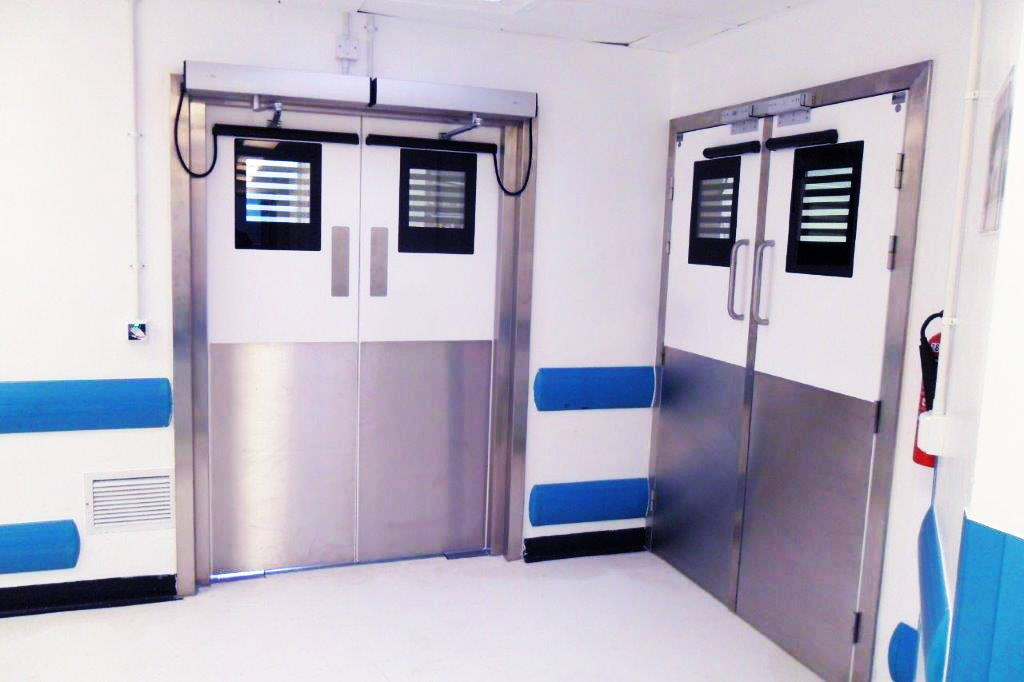
The key benefits of automated hygienic doors
Hygienic door systems with intelligent automations are the best solution to help patients and staff move within healthcare facilities in a safe, efficient and convenient manner. Automatic hygienic doors have become increasingly popular for busy hospitals due to the numerous advantages they offer.
Below we explore some of the reason why these doors are increasingly being chosen –
One of the main ways infection and viruses are spread is through hand contact. Particularly on the most frequently used building components such as doors. Automated hygienic doors are ideal for infection control areas such as hospitals, due to the fact they eliminate the need to touch the door surface, therefore reducing the risk of contamination. Automations also offer greater convenience for staff who need to move equipment and patient beds around within the hospital, without the need to open or touch doors. They are particularly useful for use in hygiene critical areas such as operating theatres, intensive care units and isolation units. Hygienic doors are constructed from Glass Reinforced Polyester, using a unique pressure moulding technique. This produces a completely smooth, void free finish to the door which prevents bacteria from harbouring and makes them easy to clean.
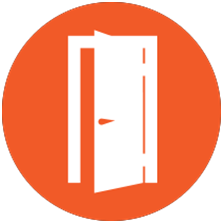
Functionality
When you choose automatic doors, you don’t have to sacrifice form for function. With so many different configurations, designs and activation options to choose from, it’s easy to find a solution to suit your needs. There are three basic types of automatic doors -swinging, sliding and bi-parting sliding. Swing doors are perfect for high traffic corridors or rooms, sliding doors are perfect where space is limited and bi-parting sliding doors are frequently used in areas requiring maximum opening spaces to accommodate the free movement of medical equipment and patient beds.
DDA and Equality Act compliance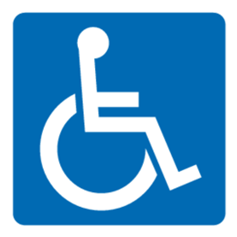
Automatic doors improve access for everyone, regardless of their physical capabilities. The introduction of the Disability Discrimination Act of 1995 and the subsequent Equality Act 2010, along with BS 8300 and Approved Document M of the Building Regulations, has made it necessary for companies to install automatic doors in order to ensure compliance.
Building occupants prefer automatic doors
Survey results prove that an overwhelming majority of building users prefer and place a high level of importance on automatic doors. A recent research study by the AAADM (American Association of Automatic Door Manufacturers) showed that 98.9 percent preferred using automatic doors. Research participants also indicated that it was most important for automatic doors to be used in hospitals. Automatic doors provide a quieter environment and enhanced privacy for patients. Staff and visitors in corridors are undetectable to the patients in enclosed rooms and doctor-patient conversations cannot be overheard in the corridors.
Safety and convenience
When properly installed, serviced and maintained, automatic doors consistently provide safe, reliable and convenient access for users. An automated door removes the inconvenience of struggling to open a heavy, manual door. Doors which are fire rated or lead lined can be particularly difficult to open due to their weight. For controlled environments, particularly where rooms are operating under air pressure, using automations is another solution for smooth effortless operation.
Today’s technologically sophisticated automatic doors are user-friendly and virtually self-sufficient. When an automatic door is installed and maintained properly, day-to-day operation is straightforward and typically trouble-free. Automated doors also sustain less damage and wear from trolleys and other aggressive traffic, which in turn increases the life of the doorset and reduces maintenance costs.
Energy savings
Sustainability is a major concern in modern construction and automated doors help save energy by ensuring doors are shut efficiently, safely and securely. Automatic doors only open and close when a user activates them, this prevents doors from being left open which results in wasted heating or air conditioning costs. Plus, many new, low energy door options use minimal power to operate and establish a tight, secure seal to conserve energy. Due to this, automatic doors are ideal for temperature controlled environments such as operating theatres.
Cost and long term value
Automated doors will sustain far less damage and wear from trolleys and other aggressive traffic due to the limited amount of contact with the door leaf. This increases the life of the door set and reduces maintenance costs. Automatic doors offer significant cost and energy savings over their life cycle. Automatic doors which are correctly installed, maintained and serviced will run smoothly for many years and virtually pay for themselves in terms of convenience and energy savings. Automated doors are a cost effective solution for providing universal accessibility across buildings.
Why Choose Dortek Hygienic Automated Doors?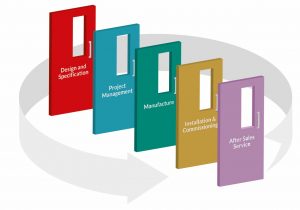
With over 50 years’ experience in the design, manufacture, installation and maintenance of hygienic automatic doors, our clients benefit from our extensive product knowledge and project management experience.
We work with clients to automate their doors to offer reliable, hands free access that improves pedestrian flow and reduces energy costs. All Dortek automations are fully guaranteed and are installed by our own certified engineers without the use of sub-contractors. To ensure your automations remain in peak operating condition throughout their life, service & maintenance contracts are also available. Dortek are approved members of ADSA (Automatic Door Suppliers Association).
Please contact us for advice, free quotations or general enquiries relating to any project requirements you may have.

